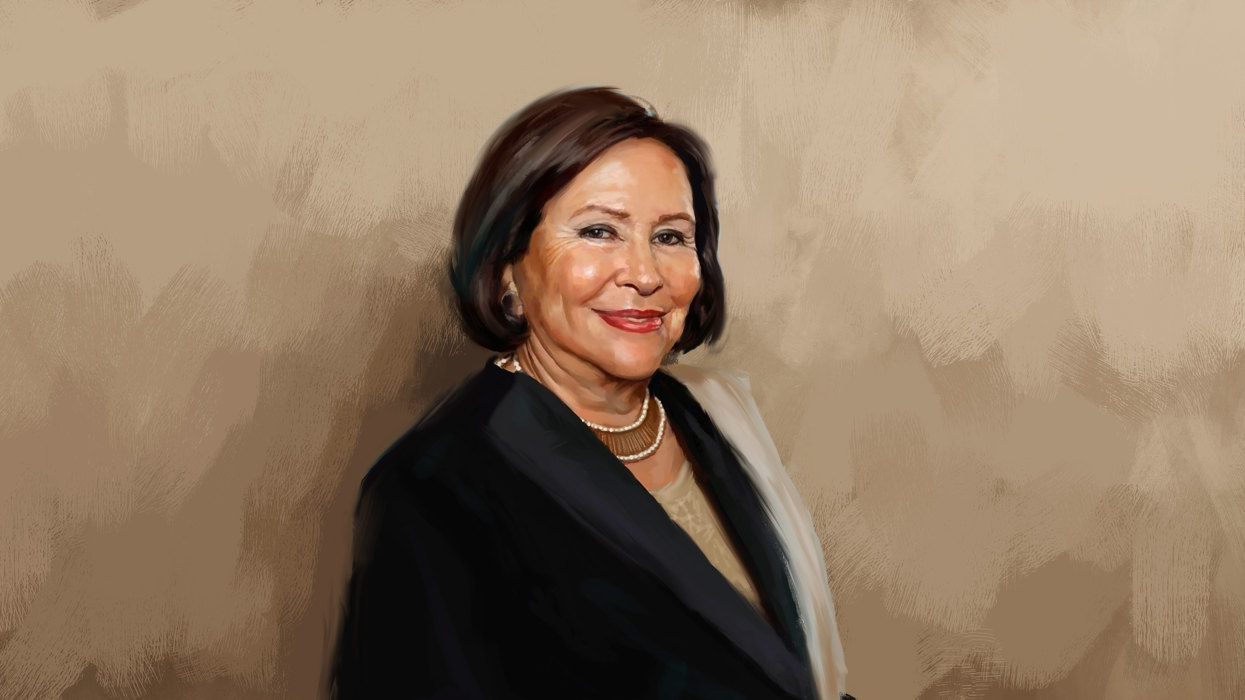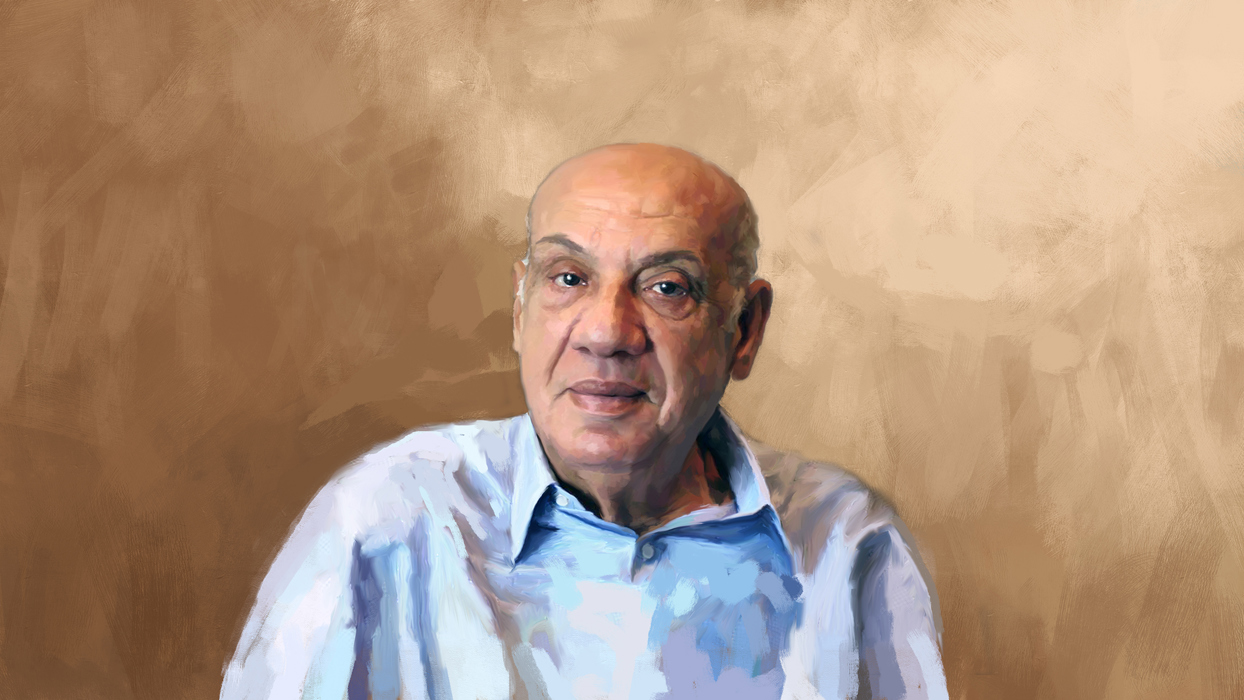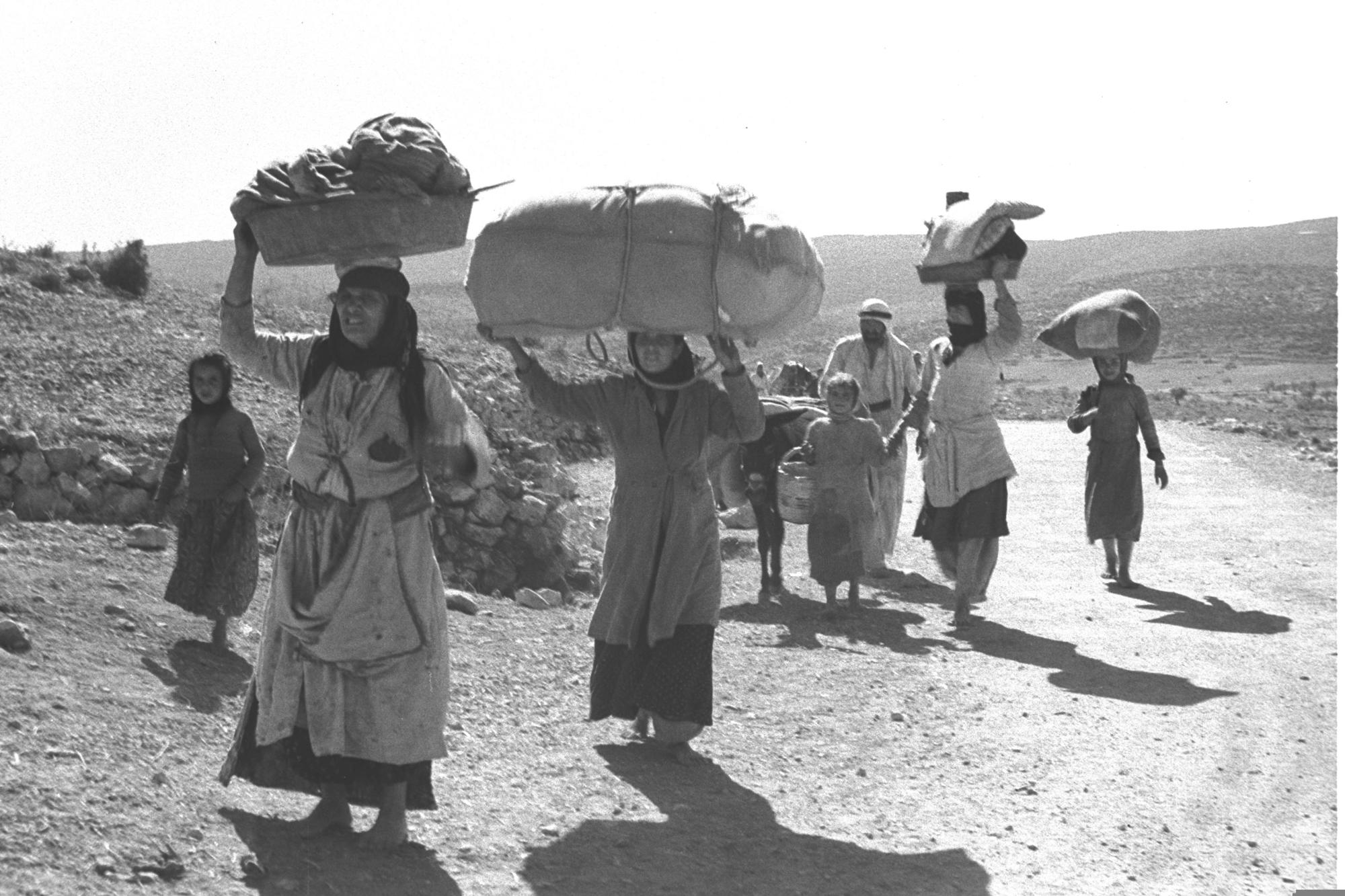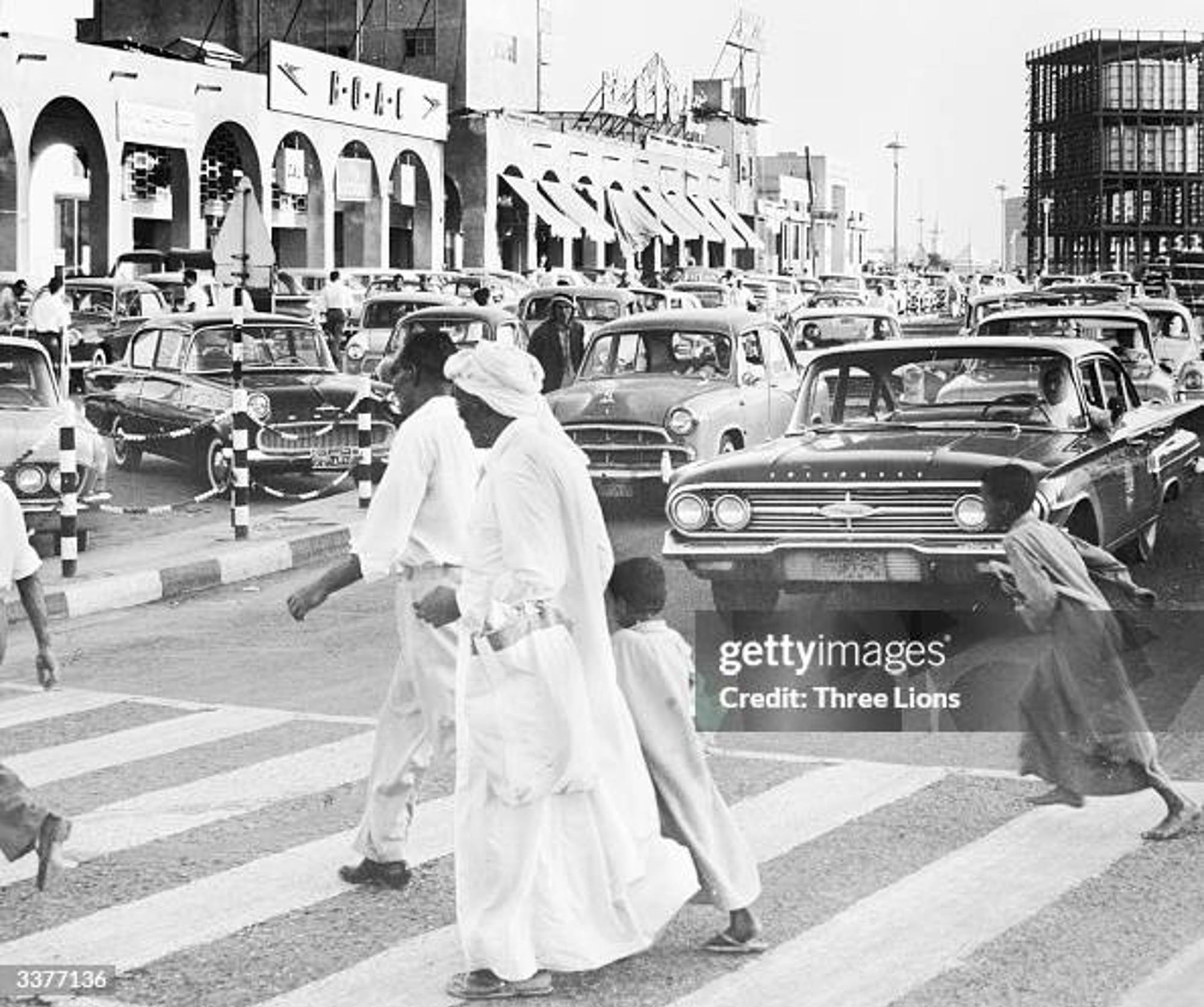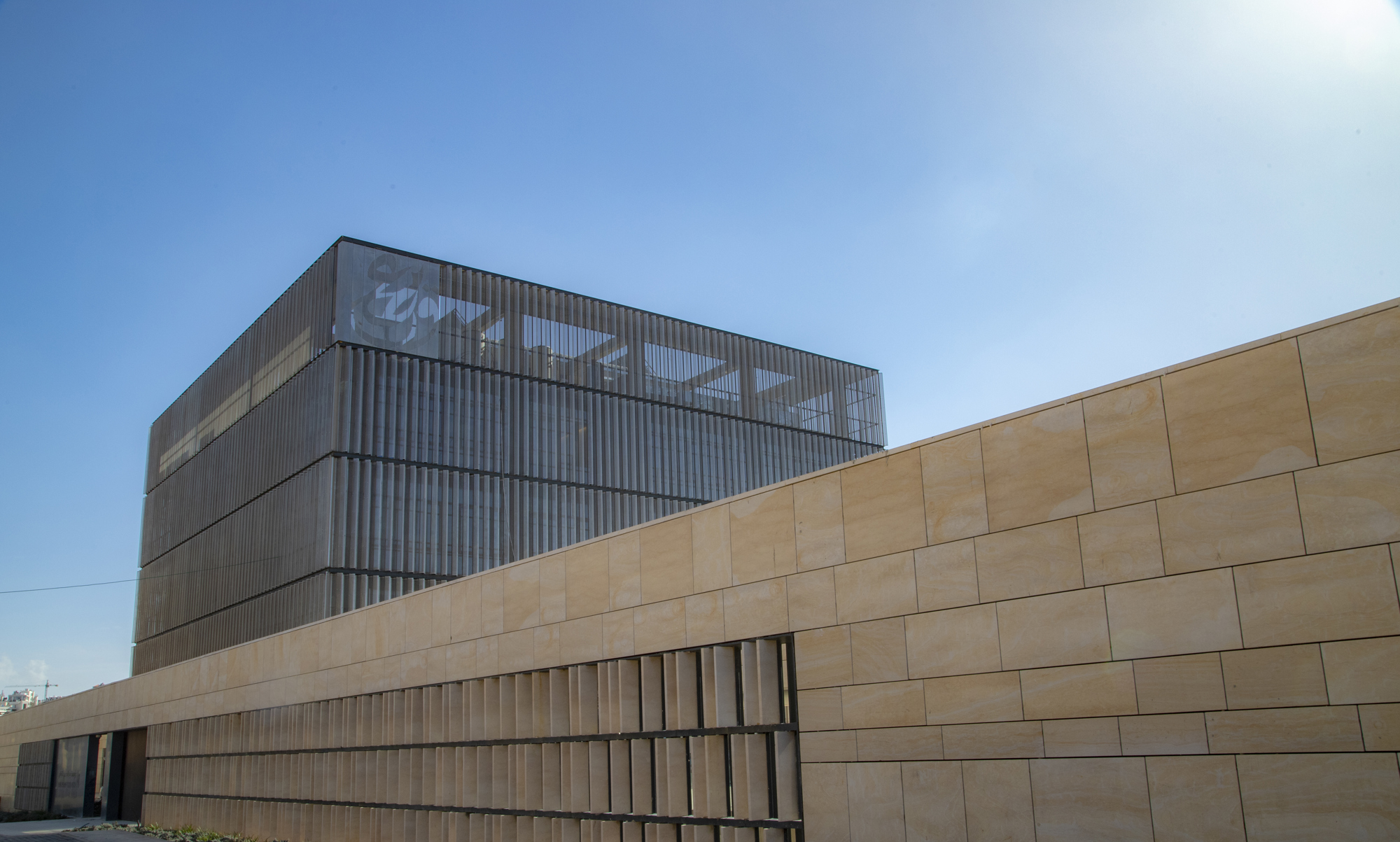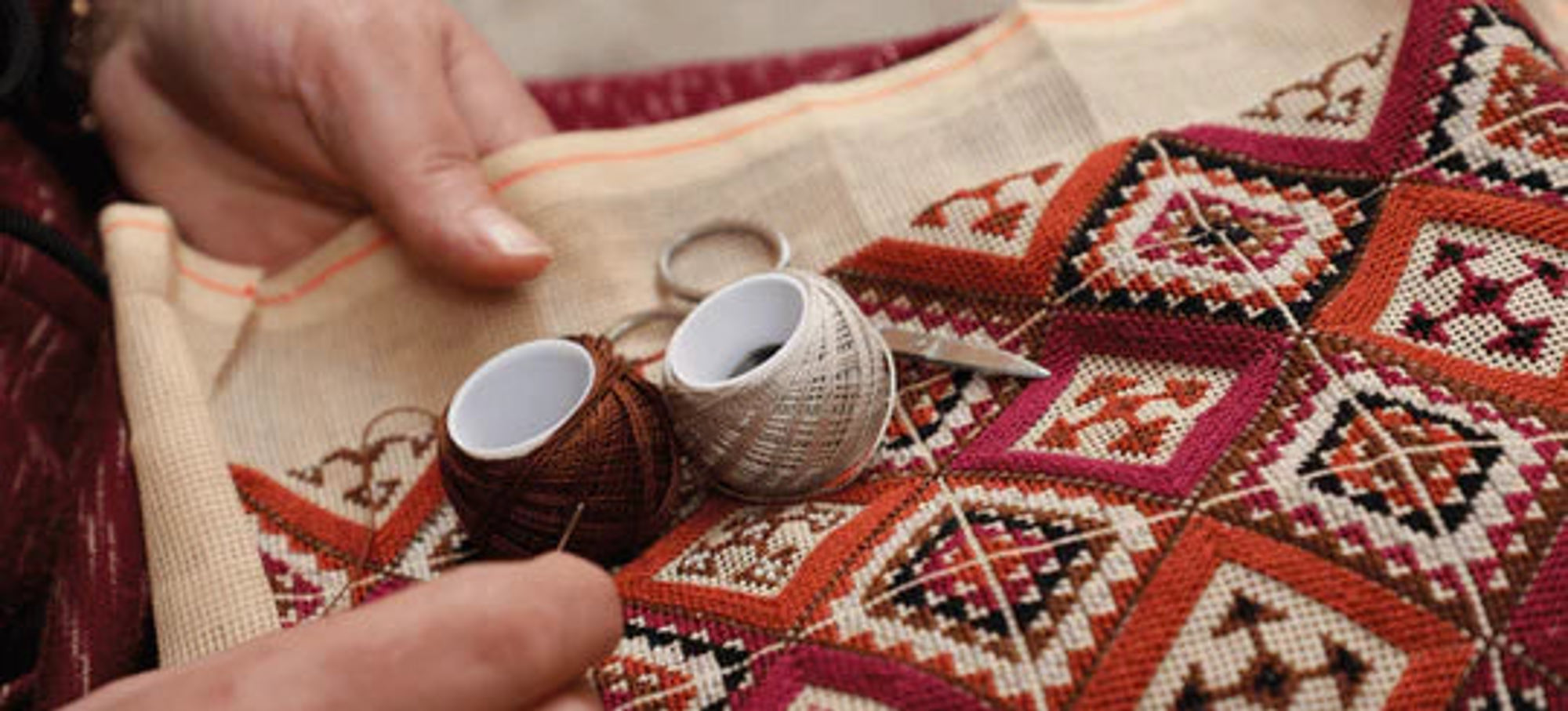
1960
1974
Palestinian identities
Palestinian identities
The Al-Qattans move to Beirut, where in 1969 Leila Al-Qattan helps to set up Inaash, an NGO supporting Palestinian women and preserving their heritage, and Al-Qattan supports the launch of the Institute for Palestine Studies (IPS) to raise awareness of the nation’s cause. Political tensions remain high with the Six Day War leaving a legacy of military occupation in East Jerusalem, the West Bank, and Gaza that exists to this day.
"My mother had an amazing appreciation for culture, art, music, and literature. "
NAJWA AL-QATTAN
A few years after moving to Beirut, Leila became deeply involved with Inaash, an NGO set up to preserve the tradition of Palestinian embroidery and provide incomes to women living in the region’s many refugee camps.
Inaash continues to this day and over the last five decades, has benefitted more than 8,000 women both in monetary terms as well as through a sense of community and belonging, and played a key role in preserving Palestinian culture and heritage.
“My mother had an amazing appreciation for culture, art, music, and literature,” recalls Najwa. “My father was a man of ideas, he focussed on politics, economics, society. But, my mother, she appreciated the world for its beauty in all its shapes. She had a very difficult childhood, growing up in poverty, losing her mother at a very young age, so I think in some ways, this appreciation of beauty, this is what saved her.”
Najwa says her mother’s interest in art and culture strongly influenced her and her father’s philanthropy. “She appreciated the need for education but understood that not every Palestinian needed to be an engineer. “It would be no good having a nation of technocrats without any humanity, and that thinking was integral to the vision of the foundation they went on to set up.”
The need to give back was always present in the Al-Qattan household and Abdel Mohsin and Leila, both from large families who had been scattered across the region following the Nakba, were generous with their support.
Najwa has warm memories of Friday lunches with her father while she was at high school (and “before the Lebanese Civil War tore us all apart”). While her mother was “out doing charity work”, Najwa, as the oldest sibling, would get rare one-to-one time with Al-Qattan.
She recalls his admiration for the western institution of philanthropy and that sense of having a social responsibility to give back, but also his feelings of guilt about being wealthy as a Palestinian.
“There was this constant sense of guilt about being Palestinian and wealthy when so many Palestinians were not wealthy and were refugees living in camps,” she says. “There was no guilt about the money itself, as my father always prided himself on how he made his money through construction, but as Palestinians, we were never allowed to forget how lucky we were.”
Najwa remembers how her father would lament during their lunch conversations that other wealthy Palestinians were not as focused on giving back and that if only they could all pool their resources, they could really make an impact – an idea that would take shape over a decade later with the founding of The Welfare Association (see below).
Describing her parents as having “boundless generosity” Najwa adds: “I don't think I ever saw them say no to anybody asking for money, even when honestly they maybe didn't deserve it.”

Palestinians in Nahr el-Bared, a refugee camp established in Lebanon, in 1952.Credit: S. Madver, UNRWA Photo Archives/AP

Nahr al-Bared, ca. 1960 © UNRWA
Imbued with this a strong sense of responsibility as a wealthy Palestinian, Al-Qattan continued to support Palestinian students at home and abroad, as well as several educational and research institutions including the Centre for Arab Unity Studies, the Ahmad Bahaa Edin Foundation in Egypt, Birzeit University, and The Palestinian Center for Policy Research & Strategic Studies, among many others.
Then, in a bid to bolster Palestinian identity, he co-founded the Institute for Palestine Studies (IPS). A nonprofit research institution, IPS was – and remains – independent and without any affiliation to a political organisation or government. The first-of-its kind in the Arab world, IPS plays an important role in raising awareness about Palestine’s cause, regionally and globally.
Al-Qattan also served as Palestine’s governor at the Arab Fund for Social and Economic Development, and as member of the Board of Trustees of the American University of Beirut, and had a brief dabble in politics, supporting the Palestinian Liberation Organisation (PLO) in its infancy, and accompanying its founder, Ahmed Al-Shuqairi to China in 1964.
This was a time of heightened tension and violence across the region, leading to a number of flare-ups including the Six Day War, which was fought in June 1967 between Israel and a coalition of Arab states including Egypt, Syria, and Jordan, and left a legacy of military occupation in Gaza and the West Bank.
In 1969, during the Palestine National Council (PNC) meeting held in Cairo, Al-Qattan was elected Speaker, but he went on to resign just a few days later after different factions within the PLO refused to agree to a unified command of the organisation’s military and financial assets.
This was the end of Al-Qattan’s formal political career, although he remained a member of the PNC until resigning, along with his friends and fellow Palestinian intellectuals, Edward Said and Ibrahim Abu Lughod, in 1990 in protest at the PLO’s support of Saddam Hussein’s invasion of Kuwait.

عبد المحسن وليلى يسترخيان في مطعم بلبنان في أوائل الستينيات. الصورة بإذن من مؤسسة عبد المحسن قطّان.

Birzeit College circa 1960s

Tanks of the 14th Brigade advancing on the Crimson Axis (south of Abu Aguila). Location - Sinai Desert (Crimson Axis). 1967 IDF Spokesperson's Unit
